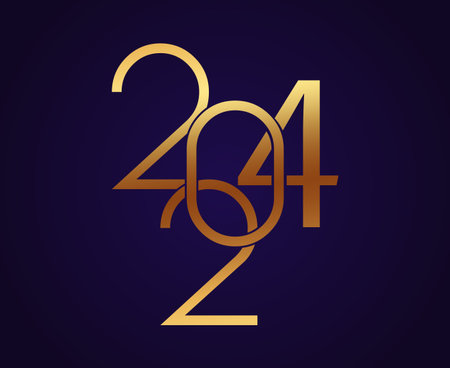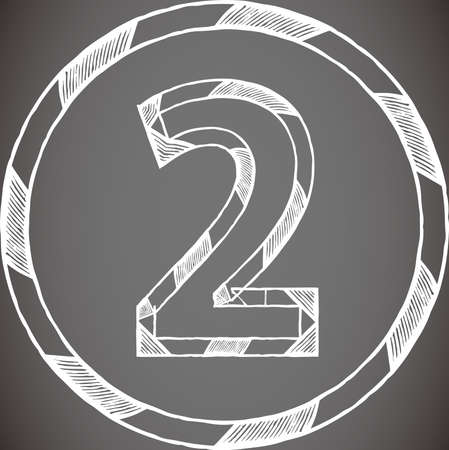1. Understanding Bazi: Ancient Wisdom Meets Modern America
Bazi, also known as the Four Pillars of Destiny, is an ancient Chinese metaphysical system that has captivated seekers of self-knowledge for centuries. At its core, Bazi decodes an individuals birth date and time into four “pillars”—year, month, day, and hour—each represented by two Chinese characters that correspond to elements and energies influencing one’s destiny. Rooted in Taoist philosophy and the principles of Yin-Yang and the Five Elements (Wood, Fire, Earth, Metal, Water), Bazi offers a data-driven approach to understanding personality, relationships, career potential, and life cycles. In recent years, Americans have shown a growing curiosity about Bazi, drawn by its holistic insights and actionable guidance for self-development. As American culture becomes more open to diverse spiritual frameworks and personal growth strategies, Bazi stands out for its blend of logical structure and intuitive wisdom. For Westerners seeking clarity beyond traditional personality tests or horoscope columns, Bazi provides a new lens—one that fuses ancient Eastern knowledge with modern American aspirations for self-improvement and life mastery.
2. Decoding the Day Master: Your Bazi Identity Explained
At the heart of every Bazi (八字) chart lies the Day Master, a core concept that serves as your foundational identity within this ancient Chinese metaphysics system. For Americans new to Bazi, think of the Day Master as your personal “type,” similar to how Western frameworks like Myers-Briggs or astrology define personality archetypes. In Bazi, your Day Master is determined by the Heavenly Stem of your birth day and acts as the lens through which all other chart elements are interpreted.
The Core Function of the Day Master in Bazi
The Day Master operates much like a central processor in a computer—it influences how you interact with opportunities, relationships, and challenges. Just as an ENFJ in Myers-Briggs or a Leo in Western astrology carries certain traits and tendencies, each of the ten possible Day Masters—five elements (Wood, Fire, Earth, Metal, Water) expressed in Yin or Yang polarity—provides insights into your default strengths, motivations, and behavioral patterns.
Day Master vs. Western Personality Systems
| Bazi Day Master | Myers-Briggs Type | Astrological Sun Sign |
|---|---|---|
| Yang Wood (Jia) | ENTJ (Leader, Visionary) | Aries (Pioneer, Assertive) |
| Yin Wood (Yi) | INFJ (Idealist, Nurturer) | Pisces (Intuitive, Gentle) |
| Yang Fire (Bing) | ENFP (Enthusiastic, Energetic) | Leo (Charismatic, Bold) |
| Yin Fire (Ding) | ISFP (Artistic, Sensitive) | Cancer (Caring, Emotional) |
| Yang Earth (Wu) | ISTJ (Stable, Reliable) | Taurus (Grounded, Loyal) |
| Yin Earth (Ji) | ISFJ (Supportive, Practical) | Virgo (Detail-oriented, Helpful) |
| Yang Metal (Geng) | ESTJ (Direct, Organized) | Capricorn (Disciplined, Structured) |
| Yin Metal (Xin) | INTJ (Strategic, Insightful) | Aquarius (Unique, Analytical) |
| Yang Water (Ren) | ENTP (Adaptable, Inventive) | Sagittarius (Adventurous, Philosophical) |
| Yin Water (Gui) | INFP (Imaginative, Empathetic) | Scorpio (Deep, Mysterious) |
Navigating Your Bazi Identity—The American Way
This personalized approach resonates with American values of individuality and self-discovery. By identifying your Day Master and drawing parallels to familiar Western systems, you can leverage both Eastern wisdom and Western self-knowledge tools to better understand your core drivers and life purpose. Whether you’re an assertive Yang Wood or a reflective Yin Water type, interpreting your Day Master through an American lens empowers you to own your narrative and navigate life with greater clarity.

3. The Five Elements: Translating Eastern Energies to Western Context
Bazi’s five elements—Wood, Fire, Earth, Metal, and Water—serve as the foundation for interpreting personality and destiny. To make these ancient energies accessible for Americans, let’s map each element to familiar archetypes, pop culture icons, and popular self-development concepts.
Wood: The Visionary Pioneer
Wood represents growth, creativity, and ambition. In American culture, Wood personalities echo the entrepreneurial spirit of Silicon Valley founders like Steve Jobs or Elon Musk—people driven by big ideas and relentless innovation. In self-help terms, Wood aligns with “growth mindset” advocates who believe in continuous personal evolution and striving toward new goals.
Fire: The Charismatic Leader
Fire is passion, charisma, and dynamic expression. Think of celebrities like Oprah Winfrey or Dwayne “The Rock” Johnson—individuals who light up a room and inspire others through enthusiasm. Fire types fit well with American motivational culture, embodying Tony Robbins-style energy that rallies communities and sparks action.
Earth: The Grounded Supporter
Earth stands for stability, reliability, and nurturing. Earth Day Masters resemble the dependable friend or the “mom” of the group—a Michelle Obama figure providing wisdom and emotional grounding. In mainstream American wellness culture, Earth parallels mindfulness practices emphasizing rootedness and balance.
Metal: The Disciplined Achiever
Metal signifies precision, logic, and order. In the U.S., this resonates with disciplined achievers like athletes Tom Brady or Serena Williams—committed to excellence through structure and determination. Metal personalities thrive in goal-setting frameworks such as SMART goals or systems popularized by productivity gurus like David Allen (“Getting Things Done”).
Water: The Adaptable Creator
Water symbolizes flexibility, intuition, and communication. Water types mirror creative thinkers—like Maya Angelou or Lin-Manuel Miranda—who adapt easily to change and channel deep emotional intelligence into their work. Within American self-help circles, Water aligns with “emotional agility” (Susan David) or the creative flow state described by Mihaly Csikszentmihalyi.
By translating Bazi’s five elements into recognizable American stories and language, Westerners can see themselves reflected in these ancient archetypes—and use them as powerful tools for personal insight and growth.
4. Cultural Translation: Avoiding Stereotypes and Embracing Diversity
When interpreting Bazi Day Masters from an American perspective, it is essential to contextualize insights without reducing individuals to stereotypes. The United States is a tapestry of diverse backgrounds—ethnicities, religions, regional cultures, and personal histories—which all influence how someone understands and applies their Day Master profile. Applying Bazi in a Western context requires a nuanced approach that honors individuality and avoids the pitfalls of overgeneralization.
Recognizing the Dangers of Stereotyping
Bazi’s traditional archetypes, such as “strong Wood” or “gentle Yin Water,” can be powerful tools for self-understanding. However, if we simply map these traits onto American personalities without considering cultural context, we risk reinforcing clichés or making inaccurate assumptions. For example, not every Yang Metal Day Master will embody the assertive, “alpha” qualities described in classical texts; upbringing, community values, and social expectations play significant roles in personality development.
Diversity in Interpretation Across American Cultures
Different American cultural groups may interpret the same Day Master traits through their own unique lenses. Consider how family-oriented communities might value Earth Day Masters’ stability differently than highly individualistic circles might. Similarly, an East Coast professional may view Fire Day Master energy as ambition and drive, while someone from a laid-back West Coast background might associate it with creativity and inspiration.
Examples of Cultural Influence on Day Master Insights
| Day Master Type | Interpretation in Traditional Bazi | Possible American Adaptations |
|---|---|---|
| Yang Wood (Jia) | Leader, pioneer, upright | Seen as entrepreneurial spirit in Silicon Valley culture; valued as community organizer in grassroots Midwest settings |
| Yin Metal (Xin) | Refined, precise, elegant | Might be interpreted as analytical strength in academic circles; appreciated for attention to detail in creative professions |
| Yang Fire (Bing) | Charismatic, passionate, inspirational | Viewed as go-getter attitude on Wall Street; seen as artistic flair in entertainment hubs like Los Angeles |
The Importance of Personal Contextualization
The key to meaningful Bazi interpretation for Americans lies in blending ancient wisdom with modern realities. Practitioners should encourage individuals to reflect on their own heritage and experiences when exploring their Day Master identity. This personalized approach ensures that insights are empowering rather than limiting—helping people tap into their strengths and navigate challenges according to their unique life stories.
5. Applying Day Master Wisdom: Practical Tips for American Lifestyles
Integrating Bazi Insights into Daily Routines
For Americans seeking personal growth, the Bazi Day Master can serve as a practical tool for self-improvement, decision-making, and harmonizing relationships. By understanding your Day Master’s elemental traits—Wood, Fire, Earth, Metal, or Water—you can leverage this ancient wisdom in ways that align with modern American routines and values.
Relationships: Enhancing Communication and Connection
Americans value openness and healthy boundaries in relationships. Use your Day Master knowledge to better understand your core needs and those of others. For example, a Fire Day Master may naturally express passion but should be mindful to avoid overwhelming partners with intensity. Meanwhile, an Earth Day Master can use their stability to provide grounding support in friendships or family dynamics. Try adapting your communication style based on the element you embody—directness for Metal, flexibility for Wood—to foster mutual respect and empathy in both romantic and platonic connections.
Career: Maximizing Strengths in the Workplace
The American workplace rewards initiative, collaboration, and innovation. Apply your Day Master strengths to excel at work: Water types might thrive in creative problem-solving or networking roles; Metal types may shine through organization and leadership; Wood types could lead change initiatives or team projects. Take time to recognize what environments boost your productivity and align with your elemental nature. Set professional goals that resonate with your intrinsic motivations—whether it’s climbing the corporate ladder or building a side hustle—and use Bazi insights to navigate office politics, manage stress, and build strong teams.
Wellness: Building Healthy Habits with Elemental Awareness
In America’s culture of self-care and wellness trends, Day Master wisdom offers a personalized approach. Fire types might need regular exercise or creative outlets to channel energy; Earth types benefit from routine and mindfulness practices; Water types require rest and reflection to maintain emotional balance. Consider tailoring diet, fitness routines, or relaxation strategies to suit your elemental constitution. For example, Metal types might feel rejuvenated by decluttering spaces or practicing structured yoga sessions. Remember that sustainable wellness comes from honoring your unique makeup—not just following mainstream fads.
Self-Improvement: Aligning Bazi with American Values
Americans are known for their drive toward self-betterment and autonomy. Use Bazi as a roadmap for setting realistic goals, tracking progress, and celebrating achievements that matter to you. Whether you’re striving for work-life balance, healthier relationships, or financial freedom, incorporate regular check-ins on how well your daily choices reflect your Day Master’s strengths. Embrace growth while respecting individual differences—after all, diversity is a core American value. By blending Eastern metaphysics with Western pragmatism, you can turn ancient wisdom into actionable strategies for success in today’s fast-paced world.
6. Ethical Considerations: Respecting Traditions in a New World
As Bazi Day Master interpretation gains traction among Western audiences, it’s crucial to highlight the ethical responsibilities that come with adopting this Eastern wisdom. The allure of ancient systems like Bazi often lies in their promise of self-discovery and clarity, but cultural sensitivity must be at the forefront when integrating these practices into American life.
Understanding Cultural Context
Bazi is deeply rooted in Chinese philosophy, cosmology, and metaphysical traditions. When Westerners engage with Bazi, it’s essential to recognize its origins and respect the centuries-old framework from which it evolved. Appropriating Bazi without appreciating its cultural depth risks diluting its meaning and may even perpetuate stereotypes or misconceptions about Eastern philosophies.
The Importance of Authenticity
Western practitioners should strive for authenticity by learning from reputable sources, consulting knowledgeable teachers, and avoiding oversimplified interpretations tailored solely for mainstream appeal. It’s not just about translating terminology into English or substituting American values for traditional concepts; true adaptation requires understanding the core principles and respecting their intended context.
Balancing Tradition and Adaptation
While it’s natural—and necessary—for practices to evolve as they cross cultural boundaries, there’s a fine line between respectful adaptation and cultural misappropriation. Americans interested in Bazi should seek to honor its heritage while thoughtfully weaving it into contemporary Western lifestyles. This balanced approach encourages growth and innovation without erasing the wisdom that makes Bazi unique.
Promoting Ethical Use
Finally, ethical responsibility extends to how Bazi readings are conducted and shared. Practitioners should avoid making absolute claims or offering deterministic predictions that could cause distress or dependency. Instead, Day Master analysis should be presented as a tool for personal insight—empowering individuals to make informed decisions rather than dictating their fate.
In summary, embracing Bazi Day Master interpretation from an American perspective calls for both enthusiasm and humility. By honoring tradition, practicing cultural sensitivity, and upholding ethical standards, Westerners can enrich their lives with Eastern wisdom—while ensuring that this ancient art continues to thrive with integrity in a new world.


